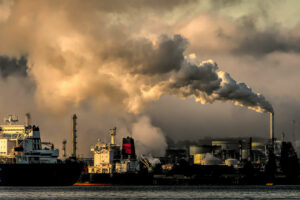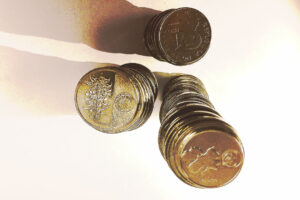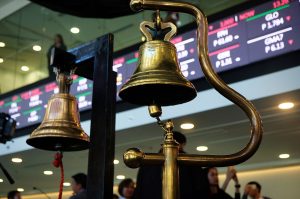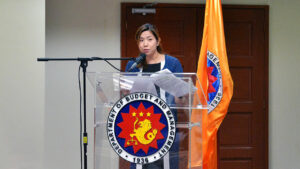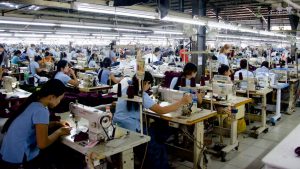(Part 4)
As mentioned in previous articles of this series, the duty of the Teaching Authority of the Catholic Church to give the faithful the necessary doctrinal formation they need to address the complex social and economic problems of society gave rise to the so-called social encyclicals that started with the papal document of Pope Leo XIII in 1891. Over the last 133 years, successive Popes have been providing the faithful, both clergy and lay people, principles for reflection, criteria for judgement and guidelines for action. These are conveniently compiled in the book entitled Compendium of the Social Doctrine of the Church which is readily available online.
The encyclical of Pope Francis entitled Laudato Si on the issue of protecting the physical environment of our planet from abuse ended with a chapter that addresses the question of what we can and must do. Principles and criteria must be translated into action. In this regard, the full participation of the laity is indispensable so that they can bring to bear their professional knowledge and specialized skills, which Bishops and priests normally do not possess, to the search for solutions to social, political, and economic problems of their respective societies.
Chapter 5 of Laudato Si addresses the question of what we (especially the faithful) can and must do. Analyses are not enough. In fact, there is a common reference to “paralysis by analysis.” We need proposals “for dialogue and action which would involve each of us individually no less than international policy.” For Pope Francis, it is necessary that practical proposals are not developed in an ideological, superficial, or reductionist way. For this, dialogue is essential. I wish that many Philippine provinces would follow the example of Palawan in holding stakeholders’ consultation meetings in which the voice of every affected sector is heard. As the Pope emphasized: “The Church does not presume to settle scientific questions or to replace politics. But I want to encourage an honest and open debate, so that particular interests or ideologies will not prejudice the common good.”
Bishops, teaching in unity with the Pope, are considered also infallible when they enunciate what is the truth in faith and morals. These are always dogmas, principles for reflection, and criteria for judgement. They should, however, be very careful not to take partisan views when it comes to practical solutions which usually are results of theoretical debates and empirical studies based on the various human sciences, whether physical or social. In these fields, there are no absolute truths. Social sciences, including economics, are inexact and may produce contradictory policy or action guidelines. This is especially true as regards solutions to the problem of climate change — the very topic of Laudato Si. To cite an example, Filipino bishops should not take a hard line on completely abolishing fossil fuels in favor of renewable energy like solar, wind, geothermal, or dendrothermal.
Recently, there have been reports that several big European companies have scaled back or are reviewing their targets to develop renewable energy because of high costs of production and low electricity prices, in a sign of the difficulties of transitioning away from fossil fuels. In fact, in the Philippines, the Department of Energy foresees that as late as the 2030s, our energy mix will continue to depend on coal to the tune of 40%. Here the balancing act is between cleaning the environment and exercising the preferential option for the poor, which is primordial to Catholic social teaching, especially to Pope Francis. The Philippines still has the highest energy prices in Asia, next only to Japan. The worst victims of high electricity rates are the poor, who are the most severely hit by inflation. Transitioning to renewable energy makes it hard to bring energy prices down as quickly as possible. In fact, there are empirically based opinions that single out modular nuclear energy as the only quick solution to bring down electricity prices in the short run.
There will be continuing debates on these technical issues in the coming months. Bishops and priests must be careful not to take sides based on their ideological biases. They must allow the technical experts to freely present their respective opposing views. In fact, only the technical experts can present sufficiently studied solutions on how to resolve the inevitable conflict among the three goals of every society signified by Environment, Social, and Governance (ESG). Policy and decision makers are increasingly facing the harsh reality that economic, social, and governance goals are not always compatible with one another.
Pope Francis, however, had the moral right to judge international dynamics severely:
“Recent World Summits on the environment have failed to live up to expectations because, due to lack of political will, they were unable to reach truly meaningful and effective global agreements on the environment.”
He reminded world leaders that what is badly needed, as Popes have repeated several times, starting with Pacem Terris of St. Pope John XXIII, are forms and instruments for global governance: “an agreement on systems of governance for the whole range of the so-called ‘global commons,’ seeing that environmental protection cannot be assured solely on the basis of financial calculations of costs and benefits. The environment is one of those goods that cannot be adequately safeguarded or promoted by market forces alone.”
Pope Francis insists on the development of honest and transparent decision-making processes, in order to discern which policies and business initiatives can bring about genuine integral human development. In particular, a proper environmental impact study of new business ventures and projects demands transparent political processes involving a free exchange of views. On the other hand, the forms of corruption which conceal the actual environmental impact of a given project in exchange for favors usually produce specious agreements which fail to inform adequately and do not allow for full debate.
In this regard, the Pope will be happy to learn that the Marcos Jr. Administration is going beyond pious statements about environment protection. The President just signed into law Republic Act No. 11995 or the Philippine Ecosystem and Natural Capital Accounting System (PENCAS) law which provides the necessary government mechanisms to carry out an accounting of the country’s natural resources. The PENCAS law tasks the Philippine Statistics Authority (PSA) to oversee the law’s implementation through an interagency working group. The Department of Agriculture will assist the PSA in generating the National Accounting information while the Department of Environment and Natural Resources will report on associated ecosystems. This is one step forward in addressing the usual problem of the “right hand of the Philippine Government not knowing what its left hand is doing!”
(To be continued.)
Bernardo M. Villegas has a Ph.D. in Economics from Harvard, is professor emeritus at the University of Asia and the Pacific, and a visiting professor at the IESE Business School in Barcelona, Spain. He was a member of the 1986 Constitutional Commission.

